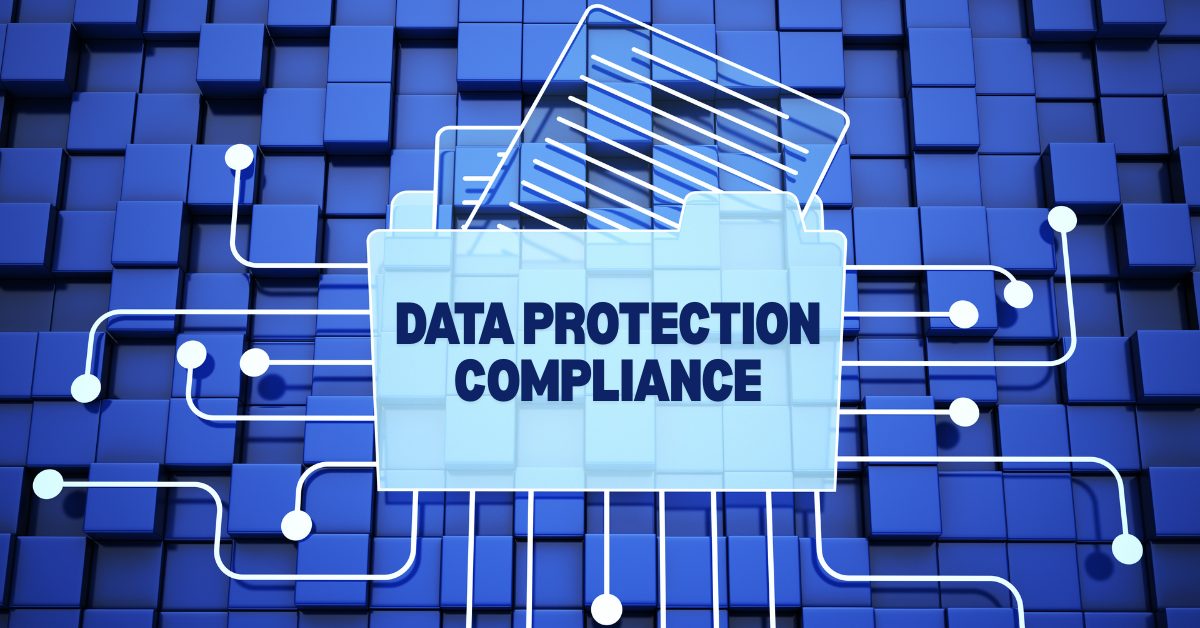Understanding Data Protection Compliance in Small Businesses
For small and micro businesses, data protection compliance is often one of the most challenging responsibilities. With increasing regulations, rising cybercrime, and customer expectations for privacy, protecting sensitive data is no longer optional. Yet many small business owners find themselves caught between limited budgets, stretched staff, and complex compliance rules.
Ignoring compliance carries heavy risks: financial penalties, legal consequences, and lasting damage to reputation. The good news is that with the right strategies and resources, these struggles can be overcome.
At the end of the day, compliance isn’t just about avoiding fines—it’s about building trust and resilience. By taking small but consistent steps toward data protection, businesses can safeguard operations and create a more secure future. At this stage, many turn to expert partners such as Gallop Technology Group, which offers a Free Domain Security Check Up and tailored cybersecurity services to help smaller firms strengthen defenses affordably.
Why Data Protection Compliance Is Essential
Small businesses handle the same type of sensitive data as large corporations: client records, financial transactions, intellectual property, or employee details. However, unlike big firms, they usually lack specialized compliance departments. This creates a gap between responsibilities and resources.
Take this scenario: A small law office stores client files on outdated servers. A ransomware attack encrypts those files, halting operations and putting client confidentiality at risk. Without proper compliance practices in place—such as encrypted storage, data loss prevention tools, and backup protocols—the firm faces not only downtime but also potential ethical and regulatory violations.
Compliance frameworks exist to prevent exactly these situations. They create standards for how businesses must collect, store, and secure sensitive data. For small firms, compliance means not just following the law but also showing clients that their trust is well-placed.
Lack of Awareness and Understanding
Awareness is often the first barrier to effective compliance. Many business owners believe they are “too small to be targeted.” This mindset leaves them exposed.
Cybercriminals frequently target smaller enterprises precisely because they assume weaker defenses. According to industry reports, nearly half of all cyberattacks focus on small businesses. The consequences include operational shutdowns, regulatory investigations, and steep recovery costs.
Education is the antidote. Owners and employees alike must understand the value of data security and the risks of neglecting it. Regular awareness training on phishing, password hygiene, and safe handling of sensitive information should be part of every small business compliance strategy.
Resource and Budget Constraints
Budgets are tight for most small businesses, but this shouldn’t translate to weak data protection. There are cost-effective strategies:
- Leverage cloud solutions: Cloud providers often include built-in security features and compliance options that reduce costs compared to on-premise systems.
- Use open-source or affordable tools: Many data loss prevention and monitoring tools are available at small-business-friendly prices.
- Prioritize spending strategically: Instead of trying to cover every possible threat, small firms should focus on the highest-risk areas like email security, endpoint protection, and secure backups.
Think of compliance as insurance: the upfront investment prevents far greater losses later.
Over-Reliance on In-House IT
Internal IT staff are essential, but compliance requires specialized skills. Threats evolve daily, and without continuous training, even skilled IT staff may miss critical updates.
For example, an office IT manager may be able to install firewalls and update antivirus software, but may not be trained to interpret compliance regulations such as HIPAA or PCI DSS. This leaves a dangerous blind spot.
A better approach is a hybrid model: allow in-house teams to manage daily operations while outsourcing compliance-heavy or advanced security needs to trusted providers. This balance ensures both coverage and efficiency.
Risks in Outsourcing IT Services
Outsourcing IT functions can be smart, but it requires due diligence. Not all providers understand compliance obligations, and handing over sensitive information to the wrong partner could cause more harm than good.
When choosing an MSP, small businesses should:
- Request proof of compliance certifications.
- Demand clear contracts that define data protection responsibilities.
- Schedule regular performance reviews and audits.
This oversight ensures that outsourcing strengthens compliance rather than undermines it.
Navigating Complex Regulations
Small businesses face a patchwork of regulations. Healthcare offices must meet HIPAA standards, retail shops must handle PCI DSS for payment processing, and companies handling international data may fall under GDPR rules.
For many owners, this complexity feels overwhelming. Yet ignoring regulations is far more dangerous. Non-compliance can result in penalties reaching thousands—or even millions—of dollars.
Affordable compliance management platforms can help track obligations. In some cases, consulting with legal or IT compliance experts for just a few hours can provide clarity and direction without exhausting budgets.
Budgeting for Compliance the Smart Way
The perception that cybersecurity and compliance are “too expensive” is one of the biggest barriers small businesses face. But let’s look at the numbers:
- The average cost of a small business data breach exceeds $100,000.
- Many businesses never fully recover after a major incident.
Compared to these risks, allocating a few thousand dollars annually toward data security is not just smart—it’s essential. Owners should present compliance spending as an investment in risk avoidance and client retention rather than as a sunk cost.
Operational Resistance and Disruption
Employees often see compliance as a burden. New rules, new software, and new processes can disrupt established routines. This resistance can derail compliance initiatives if not handled carefully.
The key is communication. Business leaders should explain why changes are necessary, share real-world examples of risks, and highlight how new systems will protect both the company and its employees. Coupled with strong training, this approach builds support instead of resistance.

Employees as the Human Firewall
Technology is powerful, but employees are still the most common entry point for cyberattacks. A single click on a malicious link can undo thousands of dollars of security investment.
Embedding data protection into company culture is the solution. Staff should be trained not only on what to do but also on why their actions matter. Reward systems for good compliance behavior can reinforce the message and keep security top of mind.
Practical Strategies to Strengthen Compliance
Here are actionable steps that any small business can implement today:
Regular Risk Assessments – Identify weak points before attackers do.
Incident Response Plans – Have clear steps for managing breaches quickly.
Affordable Data Loss Prevention Tools – Prevent unauthorized file transfers or leaks.
Encryption Everywhere – From emails to storage devices, encryption adds a strong compliance layer.
Partner with Experts – MSPs like Gallop Technology Group can provide scalable, affordable compliance support.
Each of these steps builds toward a stronger compliance posture without overwhelming resources.
Taking Action Toward Stronger Data Protection
Data protection compliance is challenging, but small and micro businesses are far from powerless. By prioritizing awareness, leveraging affordable tools, budgeting smartly, and involving employees, any business can create a secure environment.
At Gallop Technology Group, we understand the unique struggles small enterprises face. That’s why we offer a Free Domain Security Check Up, customized cybersecurity solutions, and continuous monitoring tailored to small business needs. Our goal is simple: to help you achieve compliance, protect sensitive data, and secure your future.
Call us today at 480-614-4227 to get started with proactive compliance and robust data security protection.
Source
Reference article adapted from: Challenges of Data Protection Compliance for Small Businesses.







